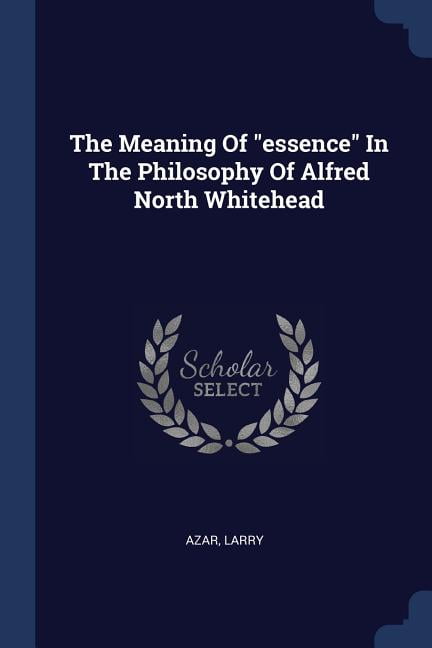

The result tends to undermine the unity of God as an actual entity and, especially, the unity of God’s functioning. This language seems to be based upon the model of the eyes, hands, and liver of a body, each of which is a distinguishable part and has its distinctive functions. Expressions such as, " X orders A," "A is a function of X," "X is responsible for A," "A is affected by X," " X is the active element," or " X is the passive component" imply that X is not itself a function or mode of functioning, but, instead, is that which does the functioning. these components of the actual entity God. "The actual entity that is needed to order the possibilities is called the primordial nature of God" (UW 101).

We read, for example: "God’s primordial nature is but one half of his being - the permanent side" (UW 56). There remains a further issue, however, which needs more discussion: Are the natures of God to be understood as distinguishable parts which, added together, make up the unified actual entity, God? Although each part must rely upon the whole of God for its existence, does each part have its own distinctive functions, operating with some degree of independence from the other parts? Is it appropriate to say, "The primordial nature of God does A and B, while the consequent nature is the component that does C and D"? Indeed, some quite competent Whitehead scholars have written as if the natures of God were distinguishable parts each with its own peculiar functions. The idea that the primordial and consequent natures are separate actual entities, each existing in relative independence from the other, has been generally laid to rest by Whitehead scholars. This problem has been noted by several commentators and even acknowledged by Whitehead. Thus, in a large portion of Process and Reality he speaks of God in terms of his "primordial nature," in the last ten pages discusses the "consequent nature," and in at least one place mentions the "superjective nature." This compartmentalized treatment and an occasional poor choice of words often results in the unintended suggestion that the various "natures" are genuinely separable and even independently actual. Nevertheless, Whitehead often dealt with God in terms of aspects abstracted from the concrete whole, frequently in isolation from one another. No aspect of God can exist apart from the whole which it characterizes. God is actual by virtue of his being a whole actual entity rather than by virtue of any particular aspect of his nature. He also insisted that God as an actual entity is not an exception to the metaphysical categories. In Process and Reality Alfred North Whitehead dealt extensively with God as an indispensable part of his metaphysical system, as that without which there would be no order or novelty and, hence, no world. And as a unified actual entity, God is “superjective” in that he is present to and immanent in the world. As a result of God’s prehension of the world he is consequent as a unified actual entity. To Whitehead, the nature of God is primordial as a unified actual entity. This material was prepared for Religion Online by Ted and Winnie Brock. Process Studies is published quarterly by the Center for Process Studies, 1325 N. The following article appeared in Process Studies, pp. Lansing is Professor of Religion and Chairman of the Department at Central Methodist College, Fayette, Missouri.


 0 kommentar(er)
0 kommentar(er)
